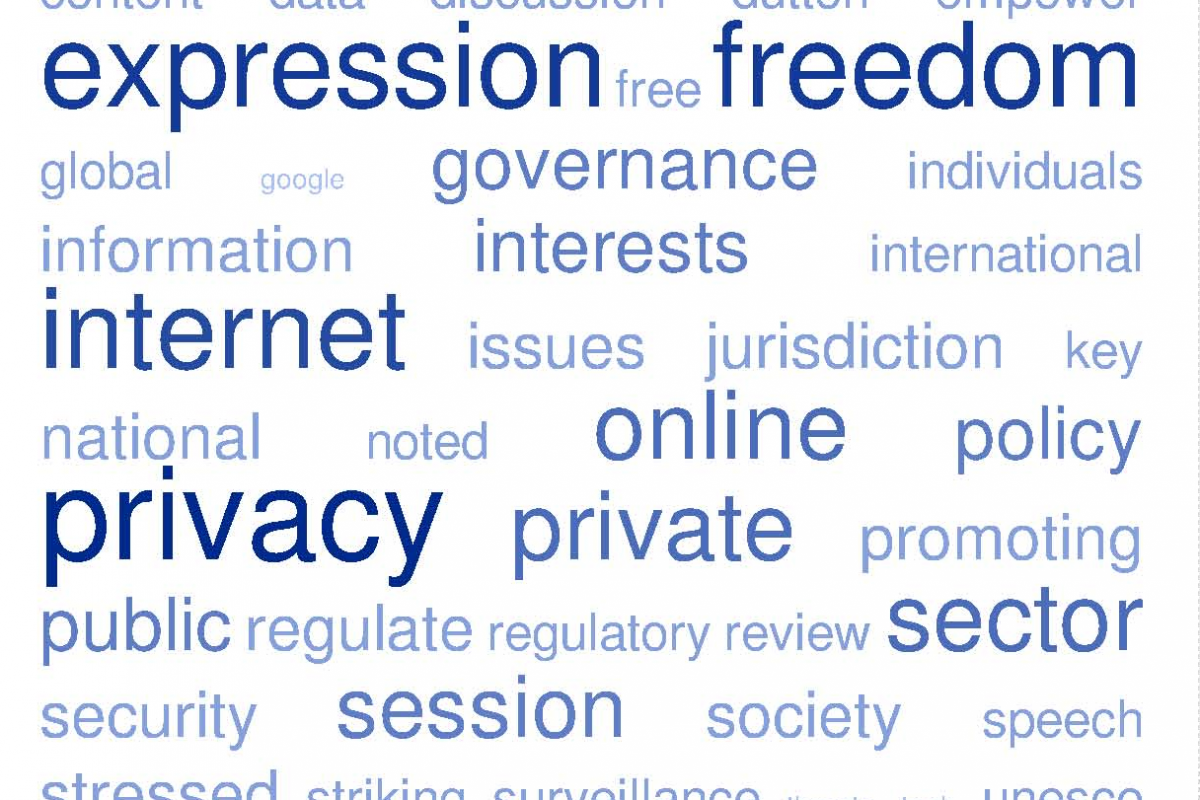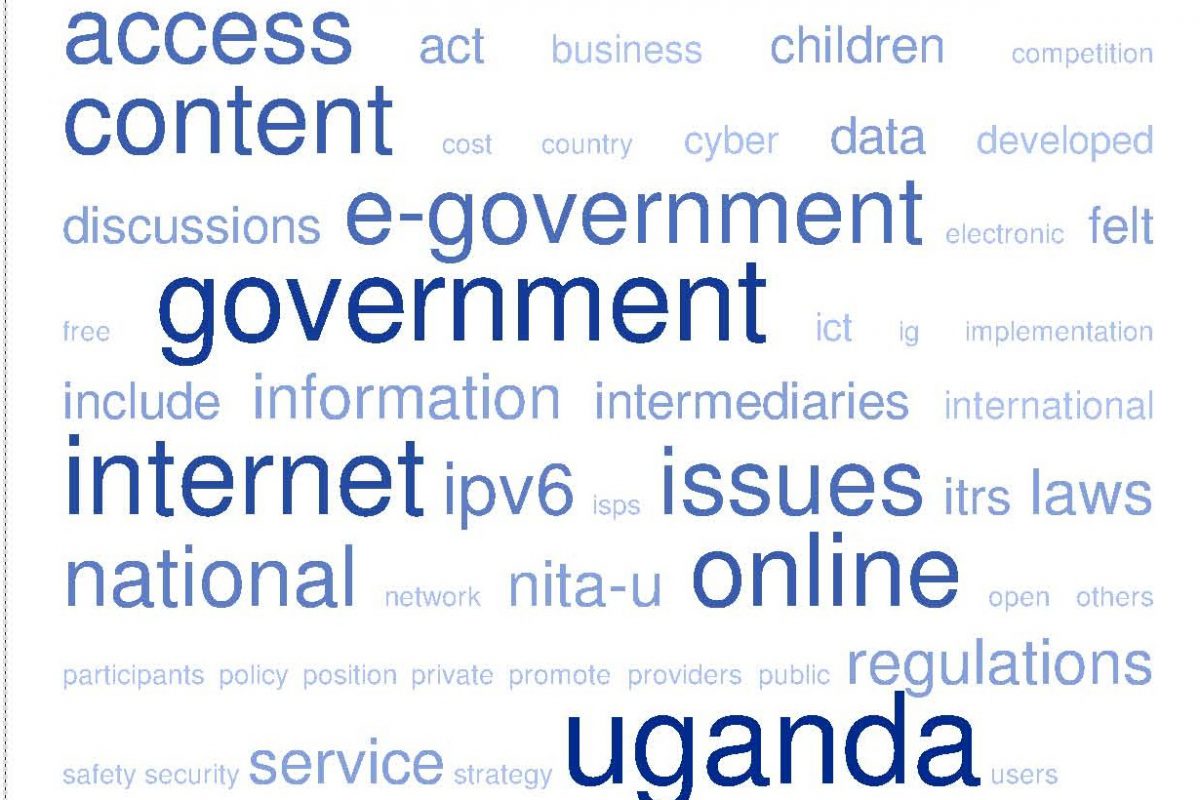The annual Internet Governance Forum (IGF) today opened in Bali, Indonesia. Taking place from October 22-25 2013, the main theme of this year’s forum is ‘Building Bridges: Enhancing Multi-Stakeholder Cooperation for Growth and Sustainable Development’.
An initiative of the United Nations, the IGF is a multi-stakeholder dialogue forum open to representatives from Government, NGOs, academia, private sector, as well as any other entities and individuals interested in Internet Governance issues.
CIPESA is participating in the forum in events organised by the Association for Progressive Communications (APC), of which it is a member. Read more about APC’s participation at the IGF here.
Furthermore, CIPESA is also participating in events as part of the Cyber Stewards Network. Read more about the network’s work during the IGF here.
Information about the IGF is available here.
CIPESA, Partners to Host Uganda Internet Governance Forum 2013
The Collaboration on International ICT Policy in East and Southern Africa (CIPESA) in partnership with the Internet Society Chapter Uganda and the ICT Association of Uganda (ICTAU) will host the Uganda Internet Governance Forum (UIGF) at the Hive Colab, Kamyokya on September 18, 2013.
The one-day Forum, whose theme is “Harnessing Internet Development in Uganda: Connecting the last mile”, is a multi-stakeholder event that involves representatives from government, civil society, academia, private sector entities and individuals interested in Internet Governance (IG) issues.
The objectives of this Forum are to discuss obstacles to internet access in Uganda, establish the key current internet governance issues relevant to the country, and build consensus on national and regional positions around IG issues. The national forum will also discuss the outcomes from the regional East Africa Internet Governance Forum held in Burundi last month.
Since its inauguration in 2006, the UIGF has continued to discuss and address internet policy issues in Uganda and East Africa. The proceedings of this year’s Forum will also be presented at the Second African Internet Governance Forum to be held in Nairobi September 24-26, 2013 and the global Internet Governance Forum in Bali, Indonesia October 22-25, 2013.
Tentative Programme
| Time | Activity | Speaker/moderator |
| 08:00am – 08:30am | Arrival and registration of participants | ISOC Uganda |
| 08:30am – 08.45am | Welcome Remarks | Lillian Nalwoga |
| 08:45am – 09:00am | Keynote Address | Dr. David Turahi, Director for Information Technology and Information Management Services – Ministry of ICT] |
| 09:00am – 09:30am | Presentation: Online discussions report | Daniel Nanghaka (ISOC Uganda) |
| 09:30am – 10:00am | Q&A session | Sarah Kiden (ISOC Uganda) |
| 10:00 am – 10:15am |
Morning break |
|
| 10:15am – 11:15am | Panel discussion (15 mins each): – Achieving affordable internet access in Uganda – infrastructure and affordability; what have we achieved so far and how can we utilise the existing infrastructure | Mr. Bob Lyazi, Director RCDF – UCC (TBD)Mr. Mike Barnard, Director – Uganda Internet Exchange Point (UIXP)Mr. Julius Torach, Director of egovernment, NITA – UJoseph Munuulo, Systems Administrator – Uganda Registration Services Bureau. Hari Kurup – Roke Telecom |
| 11:15 am – 11:45am | Q&A session and discussion | Sarah Kiden |
| 11:45am – 12:45pm | Panel Discussion (15 mins each): Online freedoms – Privacy, data protection, surveillance and censorship: what needs to be balanced? | Mr. Peter Kahiigi, Director Information Security – NITA – UMs. Ashnah Kalemera, OpenNet Africa Initiative.Mr. Peter G. Mwesige, Director Africa Center for Media Excellence. |
| 12:45pm – 01:15pm | Q&A session and discussion | Mr. Albert Mucunguzi – ICTAU |
| 01:15pm – 02:00pm |
Way forward, closure and Lunch |
Lillian Nalwoga |
See past reports from the Uganda IGF here: 2011 Forum Report, 2011 Online Discussions and 2012 Forum Report.
See past reports from the East Africa IGF here:
Balancing Freedom of Expression And Privacy
Striking a balance between freedom of expression and privacy on the internet was the focus of a panel discussion at a review of one decade after the World Summit of the Information Society (WSIS). The WSIS+10 Review meeting took place at the UNESCO headquarters in Paris, France, February 25-27, 2013.
What convergences and tensions exist between freedom of expression and privacy online? What are the implications of approaching the balance between free expression and privacy from a freedom of expression–centric point of view? What actions can governments, civil society, media and the private sector take to balance privacy with freedom of expression online? And what is the best way to empower users? These are some of the questions addressed at the session on ‘Promoting of Freedom of Expression and Privacy Online’. CIPESA’s Lillian Nalwoga was the remote moderator for the session.
The session built on earlier discussions held at the 7th Internet Governance Forum (IGF) in Baku, Azerbaijan on promoting both freedom of expression and privacy on the internet. It also drew from the Global Survey of Internet Privacy and Freedom of Expression – a UNESCO 2012 publication – which highlights a diverse international regulatory landscape, and the challenges posed by discrepancies in laws pertaining to the online and off-line spheres, and between national and international jurisdictions.
During the session, Pranesh Prakash from the India-based Center for Internet Society stressed the need for more relaxed regulations to govern the conduct of the private sector. He noted that “one must give the private sector enough leeway to safeguard them from responsibility for users’ actions and the requirement of taking down reasonable speech.” However, he added that the commercial sector has divergent interests and they do not necessarily align with public interests.
According to him, differing public and private sector interests coupled with unenforceability of self-regulation mechanisms and the jurisdictional issues of the internet mean that the conflict between freedom of expression and privacy cannot be easily resolved through public policy options that are only aimed at the private sector.
Patrick Ryan, a Policy Counsel from Google who was also a panelist, argued that the move to the “cloud” brings with it both enhanced privacy and security benefits, while at the same time putting data potentially at risk. Noting that government surveillance remained one of the biggest threats to privacy, he stressed that the private sector needs to share more information on government take down requests that violate individuals’ privacy and free speech.
Meanwhile, William Dutton, a professor of Internet Studies at Oxford Internet Institute, stressed the importance of recognising the power of the internet in empowering networked individuals and enabling freedom of expression, like never before. He cautioned that if nations do not approach the issue of striking a balance between freedom of expression and privacy appropriately, some of the key benefits of the internet may be lost. He noted that whilst some nations have taken progressive steps, many others are moving in the wrong direction and various global policy choices are increasingly restricting freedom of expression.
Indeed, this has been illustrated by worldwide trends towards more content filtering and censorship. Dutton said adopting inappropriate models for internet governance and regulation, such as disproportionate levels of surveillance in the name of security, reliance on intermediaries to regulate content, and assertion of national sovereignty and jurisdiction in the online world are threatening privacy and freedom of expression.
Key recommendations from this session were: avoiding a moral panic over privacy; creating widespread awareness of issues concerning privacy and data protection among users especially the young generation; updating policy and regulatory frameworks that address freedom of expression and privacy online; and having a clear definition on national security interests.
For more information, please visit – https://www.unesco-ci.org/cmscore/events
Promoting of Freedom of Expression and Privacy Online
Follow WSIS+10 on twitter at #WSIS
2012 Uganda National IGF Report
 The report of the 5th Uganda Internet Governance Forum organised by the Collaboration on International ICT Policy for East and Southern Africa (CIPESA) in conjuction with the Uganda National Information Technology Authority – Uganda (NITA-U) and the Internet Society Chapter Uganda is available for download here.
The report of the 5th Uganda Internet Governance Forum organised by the Collaboration on International ICT Policy for East and Southern Africa (CIPESA) in conjuction with the Uganda National Information Technology Authority – Uganda (NITA-U) and the Internet Society Chapter Uganda is available for download here.
CIPESA at the Internet Governance Forum 2012
The annual Internet Governance Forum (IGF) today opened in Baku, Azerbaijan. Taking place from November 6-9 2012, the main theme of this year’s meeting is Internet Governance for Sustainable Human Economic and Social Development.
An initiative of the United Nations, the IGF is a multi-stakeholder dialogue forum open to representatives from Government, NGOs, academia, private sector, as well as any other entities and individuals interested in Internet Governance issues.
CIPESA is participating in the forum with speakers in main sessions:
WS 187 Society before and after the Internet and digital media – Ashnah Kalemera (panelist)
WS 91 Technology, economic and societal opportunities and women – Lillian Nalwoga (panelist)
Furthermore, CIPESA is also participating in events organised by the Association for Progressive Communications (APC), of which it is a member. Read more about APC’s participation at the IGF here.
Read more about the IGF here.





